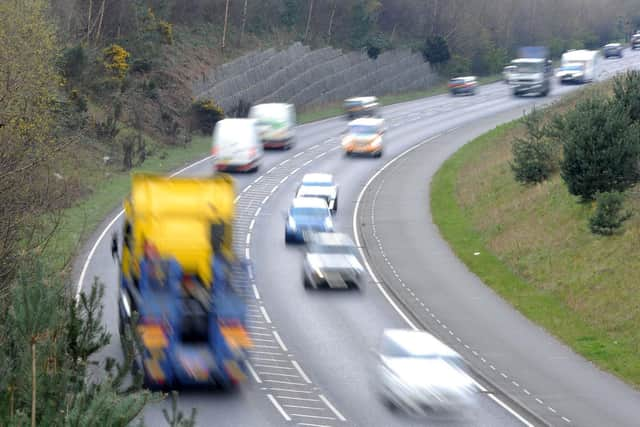New motoring rules which drivers may not know about - some of which could mean prosecution if ignored
and live on Freeview channel 276
As of March this year it is illegal to use a mobile phone for any use - including to take photos or videos, scroll through playlists or play games as part of government efforts to close a loophole previously exploited by drivers to avoid conviction.
Anyone caught using their handheld device while driving could face a fine of up to £1,000 as well as six points on their licence or a full driving ban.
Advertisement
Hide AdAdvertisement
Hide Ad

Drivers are able to make contactless payments, for example at drive-throughs, so long as their vehicle is stationary.
They can also still use a device hands-free while driving if it’s secured in a cradle, allowing motorists to use their phone as a sat-nav.
Clean Air Zones
Clean air zones, introduced to improve air quality in our cities, have already been introduced in Bath, Birmingham and Portsmouth.
Bradford, Bristol Sheffield and Tyneside plan to introduce them in autumn and in early 2023.
Advertisement
Hide AdAdvertisement
Hide AdPlans for a clean air zone in Manchester are currently under review.
The zones operate 24 hours a day, 7 days a week, every day of the year – with charging periods running from midnight to midnight.
Charges must be paid by by 11:59pm on the sixth day after driving into the zone. You can pay up to six days before you travel. If you do not pay the charge in this time, you may get a penalty charge notice.
Speed limiters
From July 6 this year all new cars sold in Europe will be fitted with a speed limiter as a new legal requirement to improve road safety.
Advertisement
Hide AdAdvertisement
Hide AdThe devices prevent motorists from driving faster than the prescribed speed limit.
They alert the driver if they’re going over the speed limit and if the driver doesn’t slow down the speed limiter should intervene.
It does this by limiting the engine’s power - rather than applying the brakes.
Transporting goods into Europe
Drivers will now need a licence to carry goods for hire or reward into the EU or Iceland, Liechtenstein, Norway and Switzerland.
The standard international goods vehicle licence will be required for light good vehicles, vans, and cars or vans towing trailers.
